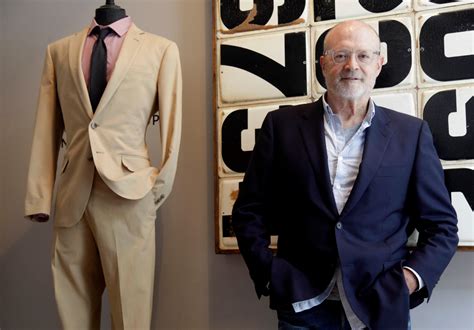A Quote by Akio Morita
Related Quotes
Don't try to buy art as an investment. Buy something you really love because you're going to have to look at it again tomorrow. And an investment can go up or down. Buy something you really adore, you really like, and you want to live with. And if you decide some years later you don't want to live with it anymore, sell it. Get out.
Why shouldn't people be able to buy movie tickets on Amazon? Or Google or Flixster, or IMDb? I don't care who you have a relashionship with. This isn't about Fandango or MovieTickets. This is about you. Where do you buy stuff? Are you an Amazon Prime member? Then I want to be on Amazon Prime. Are you a Yahoo guy? Then I want to sell on Yahoo. Are you a Google guy? Then I want to sell tickets on Google.
Suppose a white man should come to me and say, "Joseph, I like your horses. I want to buy them." I say to him, "No, my horses suit me; I will not sell them." Then he goes to my neighbor and says to him, "Joseph has some good horses. I want to buy them, but he refuses to sell." My neighbor answers, "Pay me the money and I will sell you Joseph's horses." The white man returns to me and says, "Joseph, I have bought your horses and you must let me have them." If we sold our lands to the government, this is the way they bought them.
Thousands of salespeople are pounding the pavements today, tired, discouraged and underpaid. Why? Because they are always thinking only of what they want. They don't realize that neither you nor I want to buy anything. If we did, we would go out and buy it. But both of us are eternally interested in solving our problems. And if salespeople can show us how their services or merchandise will help us solve our problems, they won't need to sell us. We'll buy. And customers like to feel that they are buying - not being sold.



































